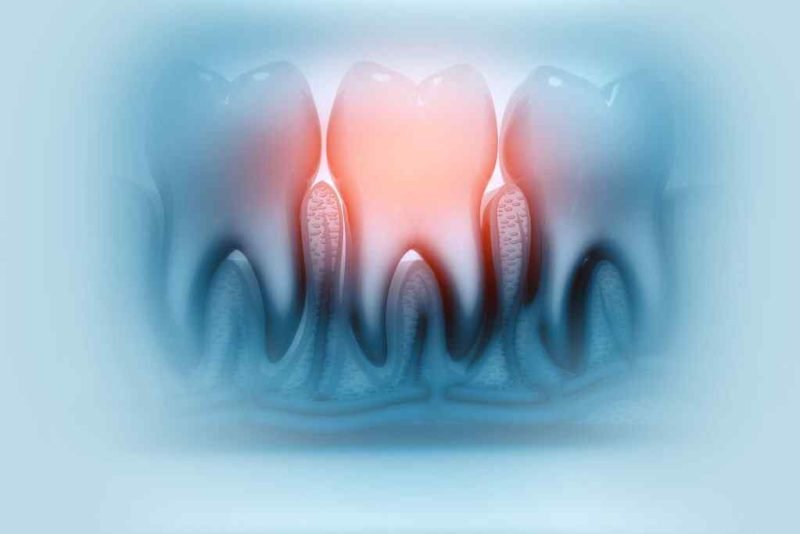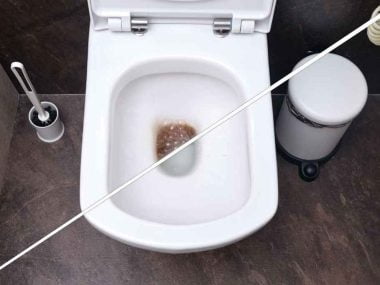How long does it take for a cut gum to heal?
Accidental cuts to the gums are unfortunate, often caused by using sharp objects such as toothpicks or dental floss or by eating hard, crunchy foods. While cut gums may be painful and distressing, they have remarkable healing capabilities, and this article will examine their healing process and factors that affect healing time and provide essential tips for speedier recovery.
Common causes of cuts in the gum
Cuts in the gum can result from various reasons and, while they often heal quickly and painlessly, can still be very bothersome and inconvenient. Some common causes for gum cuts include:
- Accidental Biting: Accidental biting is one of the primary causes of gum cuts, often occurring while eating or engaging in other activities like talking and chewing. Accidental biting may happen while talking or even just chewing!
- Sharp or Hard Foods: Consuming sharp or hard foods such as chips, pretzels, crusty bread, or nuts quickly or without due care can result in gum cuts.
- Toothpicks and Dental Floss: Incorrect use of toothpicks or dental floss may cause unexpected injuries to gums if used too aggressively.
- Brushing Too Vigorously: Brushing too hard with a toothbrush that contains stiff bristles can result in gum irritation and cuts around the gum line, particularly along this area of your body.
- Misfit Dentures or Braces: Ill-fitted dentures or braces may irritate and cut gums, leading to irritation and potential cuts.
- Dental Procedures: Certain dental procedures, including orthodontic adjustments, dental cleanings, or work using sharp instruments, may cause minor cuts to occur in the gum.
- Misuse of Sharp Objects: Relying on pins or needles to clean between your teeth or dislodge food particles may inadvertently lead to cut gums, potentially leading to their own.
- Accidental Trauma: Any external injuries to the face and mouth, such as falls or sports-related incidents, can result in gum cuts and facial lacerations.
- Receding Gums: When gums recede due to gum disease or other factors, leaving exposed tooth roots exposed and more likely to cuts or injuries.
- Dental Appliances: Broken edges on dental appliances such as retainers or partial dentures may cause cuts in the gum.
- Chewing Tobacco or Snuff: Chewing tobacco and snuff are smokeless tobacco products that can irritate and damage gums, leading to cuts.
Preventing Gum Cuts
- When eating sharp or hard foods, chew slowly and deliberately.
- Utilize a soft-bristled toothbrush with gentle brushing techniques.
- When cleaning between teeth, use dental floss or interdental brushes instead.
- Ensure dental appliances fit securely and have no sharp edges while being careful during dental procedures and adhering to post-procedure care instructions.
- And for braces or retainers, follow your dentist’s advice regarding care and adjustments.
Remember, while minor gum cuts can often be treated at home with proper care if the cut becomes deep, doesn’t stop bleeding, or shows signs of infection, it is essential to consult a dental provider immediately for evaluation and treatment.
Healing Process of Gum Cuts
Gum cuts heal like any soft tissue injury: the initial step involves the formation of a blood clot to protect the wound and stop excessive bleeding; this also serves as the basis for new tissue formation over the coming days as cells in the area begin multiplying and closing off their wound.
Factors That Affect Healing Time of cuts in the gum
- Severity of Cut: The severity and size of gum cuts can considerably impact their healing time. Superficial cuts that only involve superficial layers tend to heal more rapidly than deeper cuts that penetrate further into gum tissue layers.
- Personal Health and Immune System: People’s overall health and immune systems play a vital role in healing, as compromised immunity may delay recovery. In contrast, those with solid immunity tend to heal faster.
- Oral Hygiene: Proper oral hygiene throughout the healing process is critical to its success. Poor hygiene can introduce harmful bacteria that wreak havoc with wound healing processes and delay completion.
- Underlying Health Conditions: Certain medical conditions like diabetes may inhibit the body’s healing ability, prolonging recovery from gum cuts.
Estimated Healing Time of gum cuts
Gum cuts tend to heal more quickly than other oral injuries. With minor cuts that don’t extend deeply into the gum tissue, complete healing may occur within 3-7 days; larger or deeper cuts could take 1 or 2 weeks.
- Maintain Oral Hygiene: While being gentle around any injured areas is, of course, essential, keeping your mouth as hygienic as possible is also crucial for faster healing. Keeping up with brushing and flossing other parts of the mouth while being aware of cuts requires continued brushing, flossing, and even rinsing with mild saltwater solutions to keep the wound clean and prevent infections.
- Avoid Irritants: Avoid eating and drinking anything irritating the wound, such as spicy foods or acidic beverages, and smoking, since both can impede healing.
- Over-the-Counter Products: Topical gels or ointments containing benzocaine may help relieve temporary pain while protecting a cut during its healing process.
- Adhere to Dentist Recommendations: A dentist must be consulted if the gum cut is severe or not healing as expected. They can offer proper assessment and recommend care options.
Home Remedies for treating cut gums

Home remedies may provide relief and speed up healing time for mild gum cuts; however, any persistent cuts must be evaluated by a dentist. Here are some home remedies which may help treat cuts in the gum:
- Saltwater Rinse: Mix half a teaspoon of salt in a cup of lukewarm water. Rinse your mouth for 30 seconds with this solution before spitting out, and repeat 2-3 times daily to reduce inflammation and keep wounds clean.
- Honey:
Apply a small amount of raw, organic honey directly onto gum cuts to promote healing and soothe discomfort. Honey has natural antibacterial properties, which can soothe gum cuts while aiding the body’s natural defenses against infection and healing processes. Allow it to sit on for several minutes before rinsing out with water to rinse out of your mouth and stop the application process. - Aloe Vera Gel:
Apply a small amount of pure aloe vera gel directly onto the gum cut for anti-inflammatory and healing benefits to facilitate recovery. Leave on for several minutes before rinsing off with water. - Cold Compress:
Apply a cold compress or ice pack wrapped in a thin cloth to the affected area to help reduce swelling and relieve pain. Utilize this method several times each day until desired relief has been attained. - Turmeric Paste: Mix a small amount of turmeric powder with water to form a paste and apply directly onto any gum cuts that have been injured. Turmeric’s anti-inflammatory and antimicrobial properties could assist with healing the area quickly.
- Tea Bag:
Steep a black or green tea bag in hot water until the leaves soften before placing the bag directly over your gum cut. Tea contains tannins that have antiseptic and healing properties to reduce bleeding and promote healing.
Home remedies may provide temporary relief and speed healing but should never be seen as replacements for professional dental advice. If the gum cut is severe, persistent, or shows signs of infection (e.g., pus, swelling, fever), then a dentist must seek professional help immediately. Furthermore, practicing good oral hygiene by avoiding sharp objects in your mouth and maintaining good oral hygiene practices are invaluable in helping avoid future gum injuries.
When to seek professional care for your cut gums

Professional dental care may be essential in certain circumstances, as home remedies alone may not suffice in treating cuts gums. Here are some indications when seeking professional help may be beneficial:
- Severe Pain: If the discomfort from your gum cut persists despite efforts at home or OTC pain medication and does not go away with time or medication alone, it’s wise to seek professional medical advice as soon as possible. Severe discomfort could indicate more serious issues or infections and require medical intervention as soon as possible.
- Excessive Bleeding: If the gum cut continues to bleed profusely over an extended period, professional attention may be necessary to stop its bleeding and ensure complete healing.
- Persistent Swelling: Persistent swelling around a gum cut that doesn’t respond to home remedies may indicate infection or another issue that requires assessment by a dentist.
- Signs of Infection: If you notice symptoms of infection such as redness, pus, warmth, or fever in your mouth, you must seek immediate dental attention, as infections in the mouth can spread rapidly and lead to more severe complications if left untreated.
- Difficulties Eating or Speaking: If a gum cut is making eating or speaking difficult, it may be worth consulting a dentist to establish the most appropriate course of treatment and eliminate any other potential issues that could be present.
- Worsening Condition: If the gum cut worsens despite your efforts at-home care, consulting with a dental professional for assistance could be necessary. They will assess and offer guidance based on their assessment.
- Underlying Health Conditions: If you have an underlying medical condition that could compromise your immune systems, such as diabetes or an autoimmune disease, seeking professional guidance for treatment to avoid potential complications is critical to ensure optimal results.
- Uncertainties Regarding Healing Progress: If you are uncertain about the healing progress or are concerned about any aspect of a gum cut procedure, it’s always better to err on the side of caution and consult a dentist.
Dental professionals possess the expertise and tools to assess, treat and ensure proper healing after gum cuts. If complications or infections arise, early intervention from professional services could prevent more significant issues from developing. Don’t hesitate to seek advice and assistance from your dentist when in doubt!
How long do cut gums take to heal: Summary
While gum cuts can be uncomfortable and inconvenient, the good news is that gum tissue can heal itself with proper oral hygiene and care. Most cuts should heal in one to two weeks with proper dental attention in place – but in cases of severe cuts, persistent pain, or signs of infection, it’s wiser to seek professional dental advice as soon as possible. Remember, prevention is always better than cure! Try carefully handling sharp objects around your mouth while choosing food options with soft textures over sharp ones when possible.






